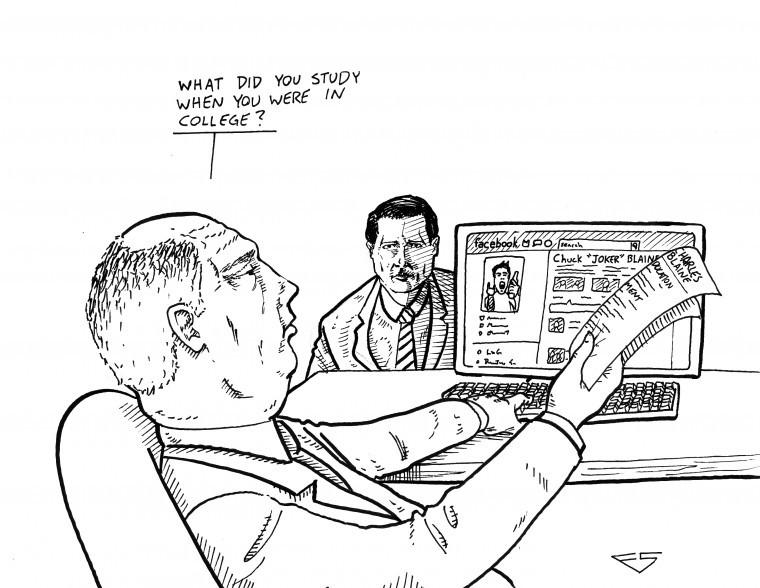Using Facebook in the hiring process is a form of discrimination
April 18, 2011
A few weeks ago, I wrote about Facebook’s ability to increase cultural awareness and, thus, greater understanding and tolerance in our society. This is hindered if users are forced to hide their flaws or “taboo” lifestyles in fear of being judged.
For most adults, especially soon-to-be college graduates, that fear is a result of employers using Facebook or other social networking sites as a factor in the hiring process. I find this to be discriminatory, but like most things, it’s not that simple.
When you sign up for Facebook, you sign a contract that grants Facebook a license to share any IP (intellectual property) content you post. This can be easily found by clicking on “Terms” at the bottom right of the website and reading the second section “Sharing your content and information.” This is essentially what makes Mark Zuckerberg rich.
Because of this contract that 600 million people so willingly agree to and probably don’t even read, the fight is futile against Facebook since you do not have to become a user.
And to be honest, I don’t care that companies find out information about me in order to advertise or better their products. It means they care about what I want and it is just a more effective and efficient way of getting what they already try to obtain through focus groups and surveys.
My problem is when a glimpse into my personal life is used as an indication of my professional character and abilities. Like it or not, this practice has become commonplace. The question is whether it is legal.
A CIO.com article, “Social Networks: A New Hotbed for Hiring Discrimination Claims,” speaks with a human resources consultant, Jessica Miller-Merrell, who specializes in social media, about what can and cannot be considered by employers.
“[Employers] can’t discriminate based on sex, age, religion, disability, genetic information, race, color, national origin, veteran status or if the candidate is pregnant,” responds Miller-Merrell in the Q&A.
These are more easily recognized forms of discrimination because they have laws enforcing them, like the Americans with Disabilities Act and Title VII of the Civil Rights Act of 1964.
If weapons manufacturer Smith & Wesson was hiring and dismissed a candidate after seeing a Twitter post about being Muslim, the company may find a lawsuit on their hands. The company could get away with it, however, by simply not documenting their reason.
More subtle discrimination like this is too easy for employers to use and too hard to regulate. Even qualities protected by law are potentially threatened by employers’ use of social networking sites.
“Unprofessionalism , inappropriateness and character are things [employers] can look at: if the candidate talks negatively about the company they’re leaving, if they have a lot of photos of themselves drinking,” Miller-Merrell said in the Q&A.
While none of these qualities are protected by an employment law, these qualities are very broad, vague terms that are left up to employers’ discretion. What qualifies as unprofessional or inappropriate? Are long hair and tattoos unprofessional, or are we past that now?
On top of that, the majority of my life is not lived through pictures, videos or Facebook posts. It just so happens that people like to take a lot more photos when they’re drinking than when they’re doing homework or working at their jobs. As it turns out, work makes for pretty boring conversation and photo opportunities by Facebook standards.
Maybe I’m being presumptuous, but I would think most people understand that social networking is usually something you do when you are in class looking at pictures or when you don’t have anything else to do besides upload every picture from last Friday night.
The only way I see employers being prohibited from basing employment off of solely their ability to do the work is by prohibiting them from checking social networking sites altogether. Maybe the word social in social networking sites is overlooked.



